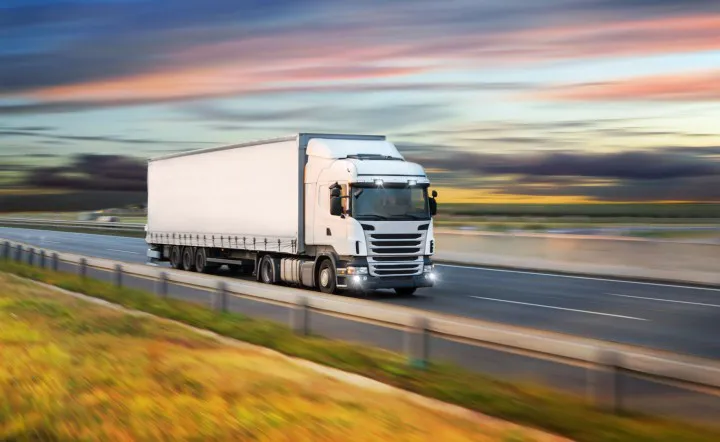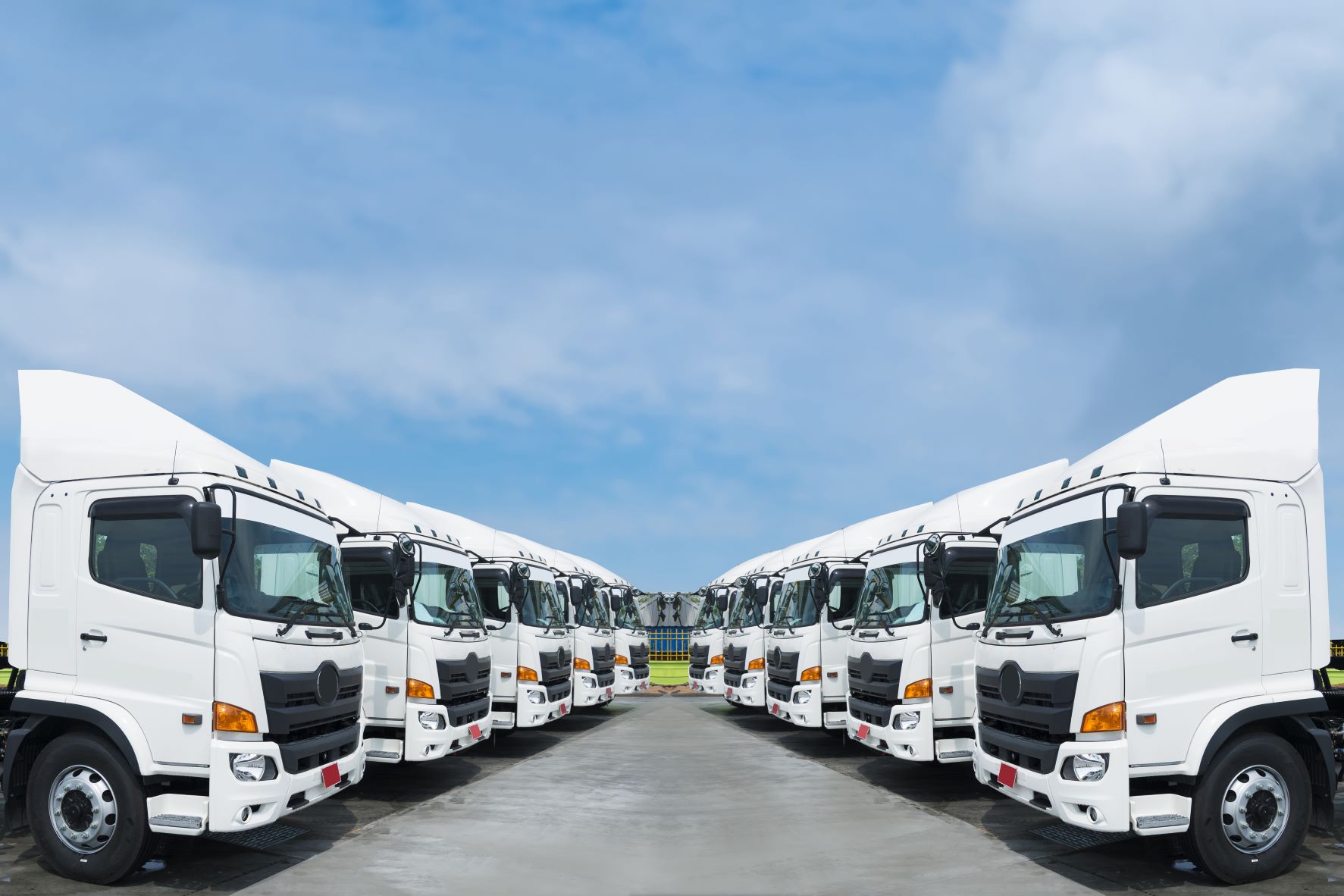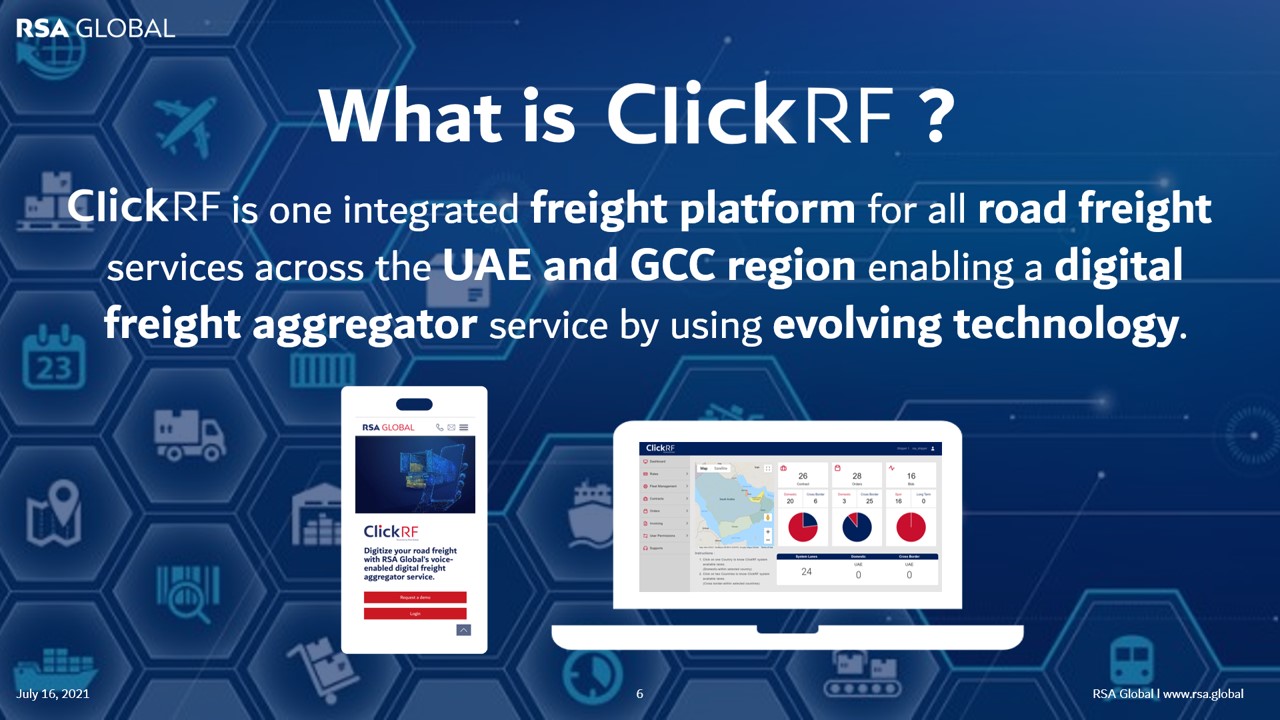Media

13 questions to ask transport companies in Dubai before contract signing

Transport companies in Dubai can be found like a dime a dozen. Dubai’s strategic location between Asia and Europe provides optimum trading conditions. The freight and logistics market has been growing steadily, mainly driven by the consistent and fast growth of e-commerce across the entire GCC region and rising international trade. The logistics sector in the country is expected to contribute 8% to the UAE economy by 2021, up from the current 5.4%. To boost the continuous growth and facilitate trade and e-commerce, Dubai has launched initiatives to support the development of its infrastructure and technology aiming at a well-integrated cargo transport system and excellent logistics infrastructure.
Based on those facts, it is not surprising that the logistics and transport sector in the UAE is highly fragmented. Hence, there are numerous transport companies in Dubai offering land transport services for cargo within the UAE as well as across the GCC region including heavy transport companies carrying heavy or over-dimensional cargo (ODC).
The high amount of existing transport companies in Dubai poses a challenge to many businesses who need to ship their goods across the UAE or to other GCC countries. Picking the right shipping company is crucial for a business’s success. Consequently, the question is how to select a transport partner you can trust, who meets your expectations, and ideally helps you expanding your business? Well, you should do your due diligence. That means do some research, get recommendations, review the companies’ websites, check customer reviews, track their record for attributes such as timeliness, consistent service, and cost efficiency, and ask the right questions. All of that will enable you to evaluate your options. Here are 13 questions you should ask your potential transport company in Dubai before assigning them as your shipping partner.

Question #1 – Do you have experience in transporting this type of item/commodity to this specific destination
Not all transport companies in Dubai ship all kinds of goods. Some specialize in the transport of certain products or cargo such as over-sized or temperature-controlled transports. A company most likely will be able to better handle your cargo if they have transported the same or similar products before. Therefore, ask if they have experience with your type of goods and if there is anything particular to consider before shipping. They are the experts and should give you all the advice you need.
Questions #2 – What is included in the quote and what are your cost and payment terms?
Initial no-obligation quotations should always be free of charge. A company charging you upfront for providing a quote is not worth to be considered as transport partner. If the proposal is vague or contains some unclear charges, ask for an itemized list of every charge before you consider signing the shipping contract. The quotation should include where your consignment will be picked up and dropped off once it reaches your destination just to avoid unpleasant surprises.
In addition, make sure you are clear about the payment terms of the trucking company. Ask them how they will charge and compare it with other trucking companies. Talk about their payment terms, for example, if they will charge the entire payment in advance, after the service has been delivered, or partially 50% in advance and 50% after completion of the shipment.
Question #3 – Do you provide cargo insurance?
Cargo insurance is a type of insurance that covers/compensates a buyer or seller of goods against cargo damage or loss of cargo.
If you consider the movement of cargo by road, there are several forces acting on the cargo during transport caused by the movement of the truck, the gradient of the road, the camber of the vehicle, the speed of movement, unexpected stops, and more. These forces may cause the sliding, tipping, and wandering of cargo which could seriously damage the cargo and/or other assets. That is why the cargo must be secured sufficiently to withstand all these forces. You can arrange cargo insurance yourself via a third party, but ideally the transport company you consider working with can offer you a cargo insurance as part of their value-added services (VAS). It will save you time and effort as well as money and additional trouble should really occur some damage to your shipment. For more information about cargo insurance offered by transport companies, read here.
Question #4 – What kind of measures do you take to prevent cargo damage?
Professional and reliable transport companies in Dubai, as anywhere, should take actions to avoid or reduce the risk of damage of their customers’ cargo. This can significantly save financial and operational losses as well as extra work and unnecessary trouble. Following precautions could be taken in advance by the transport provider:
- Usage of the appropriate type of container or truck for shipping the respective products. For instant, heavy transport cargo needs a container designed to carry heavy items, food or pharmaceutical items might need temperature-controlled trucks.
- Ensuring that the right lashings and dunnage material are used within the container/truck to restrict the cargo from moving around.
- Ensure that incompatible products are not transported together in the same truck load as they could harm each other.
If the cargo is fragile, making sure the packaging is appropriate and an adequate route is chosen avoiding bumpy streets, for example. - Offering technology-enabled solutions to allow customers to get real-time updates about the location and condition of their cargo to avoid any damage and take proactive measures to reduce further losses in case cargo has already been damaged.
Should still occur a damage, the company you work with should facilitate the damage claim process by having a clear procedure in place which can be followed easily by all parties. Therefore, ask for the handling process of damaged cargo in place before you sign the contract.
Question #5 – When I have a cross-border shipment, what needs to be considered? Do you take care of all customs related documentation?
Customs regulations pose challenges to many sellers, merchants, and shippers. Countries have specific rules when it comes to the import of goods from overseas which are subject to change any day, partly based on external circumstances such as a global pandemic.
Transport companies and freight forwarders should be experts when it comes to customs procedures. That is often one of the reasons why companies decide to partner with external transport companies in Dubai. Each of the GCC countries has specific individual regulations. Customs declarations must be ready for inspection at the customs entry point, with local invoices attached to verify the value and country of origin of the goods. Sounds complicated? Oftentimes it is. Hence, make sure to look for a partner who is competent in terms of customs handling, informs you comprehensively about the rules and regulations, and assists you with all the paperwork.
Question #6 – Do you have a network in the country I am shipping to?
When you ship to another country, it is crucial to understand what happens with your cargo once it is in the destination country. Who will handle your shipment upon arrival and ensures it reaches the consignee on time? If the partner you are working with does not have own presences in that country, then make sure they work with trusted agents or partner companies which will manage the shipments professionally on your partners behalf.
Question #7 – Do you have your own fleet of trucks?

Transport companies in Dubai and in the UAE either run their shipping business by owning their trucks or by renting them from a truck supplier. There are advantages and disadvantages for both. As trucks are expensive assets, owning a fleet comes with costs. That is why usually established and large trucking companies can afford to run an own fleet. Related benefits are that they have the control over the vehicles, are more flexible in terms of truck availability and recruit and train their own drivers. In case of cargo damage or other problems, the customer service is likely to be more responsive as there is no other party to be involved for clarification.
However, not having an own fleet does not necessarily mean bad transport service. It really depends on the professionalism and management of the transport company. More important is to clarify questions around the number of available trucks, their age and current condition. A company that runs a large fleet is more likely able to provide you with a truck whenever you need one. Moreover, newer vehicles run faster and chances that they will experience problems on the road causing delays are lower.
Question #8 – How experienced are your drivers?
As your goods will be shipped by the drivers hired by your transport company, it is fundamental to ask about the truck drivers’ level of experience and training received. A professional and experienced driver is the key to a successful trucking company. In case of any problem or disruption occurring on the way, a driver needs to know how to respond fast and efficiently to keep the damage caused as small as possible. Hence, do not be shy about asking about the experience and training of the drivers and who will be the driver in charge of your shipment. It would also be helpful to know if you and the driver can reach each other in case of an emergency or to align the shipment’s exact arrival time and location.
Question #9 – How long will the shipment take from door-to-door? Can I track my shipment?
The duration of a shipment counts to the most important aspects of the supply chain as many other things depend on that such as stock availability in a store. The transport company might not be able to give you an exact arrival date for your cargo, but they should be able to give you an estimated time frame. Shipping times depend on the origin, the destination, the route taken, frequency of shipments on that route, traffic at border-crossings, and more. In addition, external factors such as changing climate conditions can further impact the lead time. A great way to keep you in the loop while your cargo is in transit is to provide tracking options. Choose a shipping company that lets you track your cargo online or via a phone app. Not only will you have a more accurate idea of when to expect your items, you will not have to bother your shipping company for information over the phone.
Questions #10 – With what kind of technology do you work?

The software a transportation company uses is instrumental in how the company helps you manage and gain visibility to your freight. Look for a partner who offers an integrated transportation management software (TMS) and ask them for an introduction to their system. If they cannot explain their technology in a way that is easy for you to understand, they may not understand the technology very well themselves. If the company offers an external licensed TMS solution, ask for the brand name of the software and do some research on how it performs against similar products.
An Application Programming Interface (API) is software that lets two applications talk to each other. Ecommerce APIs help you integrate your ecommerce website with several other sites and internet services to streamline cross-border ecommerce. It is highly beneficial to select a partner who develops customized API to make integration for your business easy.
Question #11 – I have an over-dimensional cargo transport (ODC) to be shipped, what do I need to consider?
Due to their large size or heavy weight ODC shipments, like huge machinery or large vehicles such as a bus or train wagon, need special consideration for successful shipment. Whether it is logistical limitations, trade restrictions, special packaging, customs duties, tax policies or extra charges, your logistics partner should be able to offer you guidance about the particularities involved in the transportation of your ODC shipment. Should they not be able to or are hesitant in providing sufficient information, it is likely that the company does not have enough experience in transporting similar cargo to your destination country.
Question #12 – What can you do to improve my operations?
Ideally your transport partner does not only provide you with the services you ask for but helps you pro-actively to enhance your operations and productivity to eventually grow and scale your business. They have the expertise and experience to do so. By analyzing your business operations and markets you are catering to, a great partner should come up with measures and suggestions how to implement them in order to bring your business to the next level. Try to find out about their intention to do so by asking specific questions. A company with that mentality should also be able to present customer success stories and best practices proofing the satisfaction of their customers with the cooperation.
Question #13 – Do you have any customer references?
In any way, it is recommended to ask for customer references to better understand the company’s level of professionalism and service provision. Often transport companies feature customer testimonials on their websites. Check them out to see if you find them reliable. Talk to other customers and verify the services provided by that company. Positive feedback about your vendor gives you confidence and this is the primary reason for selecting a vendor for shipping your goods.
Choosing the Right Transport Company in Dubai
Many transport companies in Dubai, and in the UAE overall, are professional, reliable, and perfectly capable of getting your consignment to its destination without extra hassles. If you are interested in finding a selection of available providers, you can check here for a list of transport companies in the UAE. However, as said before, it is highly recommended to request the right information prior to signing any contractual agreement in order to reveal the best choice for your business. This will enable you to compare and identify a reliable shipping partner that can deliver your cargo on time and is willing to go the extra mile by supporting you in growing and scaling your business.
RSA Global is one of the transport companies in Dubai offering extensive FCL (full-container-load), LCL (less-than-container-load) and ODC road freight services within the UAE as well as cross-border transportation across the GCC and MENA region including all customs clearance. We run our own fleet of trucks including temperature-controlled vehicles as well as tanks for hazardous and non-hazardous liquids and chemicals. Our services include consolidation and deconsolidation of goods, first and last mile distribution between ports, factories, warehouses, stores, and end-consumers. Based on your logistics requirements, we will present you with the best solution for your business and continuously try to develop more efficient ways to handle your transportation needs aiming at achieving cost savings and operational excellence for your business. Our overall goal is to build trustful and long-lasting partnerships with our customers growing and scaling together across borders.
As we know how crucial fast and timely delivery is, we want to provide our customers with as much supply chain visibility as possible. That is why we have developed RSA’s Click Eco System, our digital solution set for international freight, road freight, e-commerce, and smart warehousing. ClickRF (Click for your Road Freight) is our software for efficient road transport. It is a digital marketplace for all road freight services across the UAE and GCC region providing shippers and transporters with an aggregator service for fast, convenient, and transparent transport solutions. The platform is powered by Artificial Intelligence (AI) and RSA Global’s voice-enabled intelligent assistant RiA. RiA carries out administrative tasks on behalf of ClickRF’s users saving them time and effort.

Through ClickRF shippers can inquire rates for any land lane within the UAE and GCC region, compare and negotiate offered rates, book shipments, instantly track and trace them, perform online payments, and receive e-invoices, amongst others. In turn, transport providers can bid and adjust rates for requested lanes, manage orders, manage their drivers & fleet, receive online payments, and continuously optimize their operational processes by utilizing the system’s smart data. All steps are facilitated via a transparent real time communication between the supply chain stakeholders through the single window interface WhatsApp.
Besides our existing set of APIs, we also develop customized APIs for our customers to facilitate the integration of their systems and software with ours, one of the most important aspects when it comes to efficient and seamless cross-border e-commerce fulfillment.
Reach out to us any time to discuss your transportation needs. We are happy to recommend a customized solution and future-plan for your business solving your challenges for a better tomorrow!



